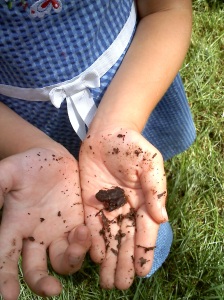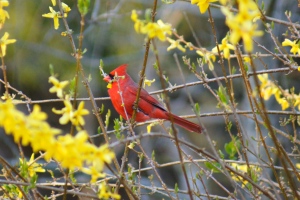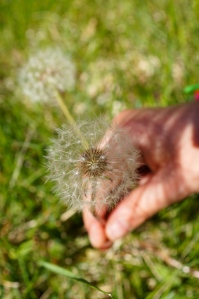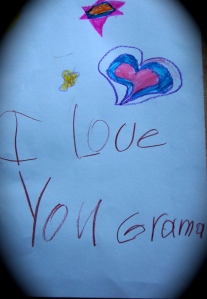I decided to repost this from two years ago since it is a beautiful example of the love between a father and his son. I met them both while working at the toy store, where I did my best to end Steven’s search for a whale. Happy Father’s Day!
Closing time has come and gone at Olde Mistick Village, the sidewalks are filled with more ducks than people shopping. The neighboring stores are dark, their doors locked, and their employees on their way home. It is time for me to call it a night.
The marionettes swing in the breeze; the pink flamingo seems to wink at me. I gather the puppets outside to carry them into the store. Behind me there is quacking. The three ducks who rule our front yard are on alert. The white leader honks at a lone male that slipped under the fence and entered their territory. The leader’s two sidekicks join in the chase, nipping at the uninvited younger mallard. The white duck pecks at the intruder’s neck; his wings flap with agitation. I move towards the gang of birds, clapping my hands until they separate.
“Do you break up fights every day?”An older man walks in my direction, followed by a younger man. With the same chiseled chins, the two are clearly father and son.
“This is the first fight I’ve seen today.”
“You still open? We won’t be long, I promise.”
“Uh . . . sure, yes, come on in.” I smile.
“We need to hurry, Steven. This woman wants to close.”
Steven, who looks to be in his late thirties, dashes into the store. “Whales, where are your whales?” His attention shifts rapidly from shelf to shelf. “I need a whale.” He looks up. He looks down. Lions are pulled from their shelves. Tigers. Bears. Cats. Dogs. None of the stuffed animals are right. Hoping to locate the whale he remembered having as a child, Steven continues to push toys aside. He mutters, “Big. Brown. Brown with beans . . . Big. Brown. Brown with beans . . .”
“He’ll never find it, not the way his was, with the fabric worn around the tips of the eyes and the end of the tail from his constantly caressing it.” His father adds. “And the head was flat from Steven leaning into it, night after night, when he was a child.”
Steven, who has traveled over an hour to get here, is missing more than just a stuffed whale from his childhood.
We do not sell brown whales in the toy store, nor do we sell giant whales. The largest we have is a 24-inch white beluga whale. I hand Steven the beluga. He brings it close to his nose, leans his cheek against it, and slides his face back and forth brushing the fabric. “Do you have a bigger whale . . . brown whale . . . filled with beans?”
“No, we don’t, I’m sorry.” While I search for anything close to what he describes, Steven paces . . . and paces . . . and then he notices the three-foot lobster displayed on a high shelf above his head. He stands on his tiptoes and reaches for the stuffed sea creature. “This will do,” he says.
“No, Steven, we’ve done this before. You’re not thinking clearly.” The father takes the lobster away and leaves the beluga whale in his son’s arms. He sighs—a long sigh. His hair is grey and thin. He removes his glasses and wipes them clean. He sighs again, and then says to his son, “We’ve made these trips over and over again, from New York to Massachusetts, and to anywhere else that might hold the promise of a brown whale. Steven . . . Steven, look at me, son.”
Steven’s hold on the beluga whale loosens. I catch it before it hits the ground. “We have catalogs. Perhaps I can find a large enough whale for you,” I say and hand him back the beluga.
The ends of the father’s mouth turn up, forced out of kind appreciation. “That’s nice of you, but we’ve been looking for a very long time. I never know what he wants.”
I head to the back stock room, grab six catalogs, and carry them to the front desk. Steven follows me, his arms clutching the beluga.
“How big of a whale do you want?” I ask.
“Very big.” Steven focuses on his shoes while clinging to the toy. We go back and forth. I flip through pages. He peers at pictures. “No, not right,” he tells me over, and over, and over again.
His father stands next to him. “Steven, look at me. Look at me, please.” Finally, Steven lifts his eyes. “We aren’t going to find a whale. Not like your whale.”
“I want a whale,” says Steven. “I want a big, brown whale with beans.”
“Steven, we need to leave. This kind lady wants to go home.”
“My whale, we came to get my whale,” Steven reminds his father.
The father turns away from the counter and gently tugs at his son’s arm. Steven digs his heels in. Thirty minutes have passed since they first walked into the store.
“Tell me about your whale,” I say.
“He doesn’t know what he wants. I’ve been looking and looking—they just don’t make toys like they used to.” His father tugs again.
“Steven, what did you love most about your whale?”
Steven turns, looks at me, and walks back to the oak counter. He runs his hands along the wood. “I liked the way the beans inside felt.”
“They don’t make animals with those beans anymore. Too many safety concerns,” I say.
Steven swirls his fingers around the shape of a large knot in the oak.
His father sighs. “Thank you for trying, but he’ll never understand.”
I arrange the pens next to the register; straighten the shopping bags. I glance in Steven’s direction. “Besides the beans, what else did you love about your whale?”
“Soft, it was soft . . . I could sleep on it.”
We have a two-foot penguin, but it is not soft. We have large stuffed dogs, but they are not whales. We have a three-foot lion, but the color is tan, like a pale honey.
Then I remember Gus. “I have a bear, a large bear,” I tell him. “And it’s brown.”
Steven studies the floor. “I want a whale. I need to bring a whale home tonight.”
The three of us stand in silence. I check the time. The owners must be wondering why I haven’t called with the day’s sales.
“Let me show you the bear,” I say.
“It’s hopeless. We’ve kept you long enough,” the father says.
“I’ll be right back.” From the stuffed animal room, I carry the three-foot floppy bear to the front desk. Gus has lived in the store for quite some time now. Before I close up at night, he gets an extra pat.
“He’s very soft,” I tell Steven.
“It’s not a whale.”
Now, I am the one studying my shoes. “I won’t be able to find you a large whale tonight. Just hold the bear, see what you think. He’s brown and soft. You can lean into him.” I hand Steven the bear.
He pushes his nose against Gus. He plops Gus against the counter and leans into him. “He is soft. I like him.”
“Yes, I like this bear myself—very much.”
The father pulls at the price tag. “The bear is $130. You didn’t bring enough money.”
Silence returns. I shift the catalogs together and form a single stack, place them on the floor.
The father stares at the door. Steven’s face is buried into Gus’s fur.
I want to buy him the bear, show him he can love Gus as much as the whale. I want to watch him walk down the sidewalk with the bear in his arms, even though it’s always hard when I let go of a stuffed animal I’ve grown attached to, but Steven did not bring enough money.
Then, holding the bear tightly in one arm, Steven reaches into his pants pocket. He removes a black leather wallet, worn with holes visible at every corner. It is a wonder the wallet doesn’t explode all over our wooden floor. A penny pokes through one end, but does not fall out. His wallet is thick with papers, some yellowed, some coated in a worn plastic. There is almost five inches thick of paper memories.
His father settles into a stance; feet spread apart, firmly planted on the wooden floor—a familiar routine, I imagine. His hands out of his pockets, he turns his palms upward, as if waiting at a communion rail.
Steven pops the wallet open and forms the shape into what appears to be a triangular leather cup. “I want the bear,” he says.
“Let’s count,” says his father.
Steven places two twenties on our wooden counter, then another crumpled twenty.
“How much is that,” asks his father.
“Sixty,” says Steven with confidence.
I separate the bills. “Eighty, you have eighty dollars here.”
Steven pulls out a five and a ten—ninety-five. When he stretches the leather further, the penny falls to the floor, where it remains. Next, come the one-dollar bills, all carefully folded into triangles, the points as worn as the wallet.
“One. Two. Three,” he counts.
There is something magical about the wallet, which is not diminishing in size. Instead of pulling rabbits from a magician’s hat, he conjures up one-dollar bills out of faded leather. How does the wallet hold all of the tightly folded shapes? I expect him to run out of money, yet Steven continues to hand another and another dollar bill to his father, never looking up or breaking his rhythm. Not once.
His father unfolds and flattens each bill, using a quarter to work out the creases.
The stack of money on the counter grows higher.
I wait and watch. “Why do you fold the dollar bills into triangles?”
Holding one bill in his hand, Steven lifts it to the corner of his right eye. “When I’m sad . . . this makes me feel better.” He taps the edge of the triangular shape against his skin. Three times. He passes the bill to his father.
“May I ask what Steven has?”
The father talks and talks and talks, like a dam overflowing. Like a man who hasn’t been noticed in years.
I cannot tell you what the father was wearing that day, but I can tell you his words—his story. I can describe the medicine bottle he has carried in his pocket from the seventies, day after day, year after year. The label so worn that it barely reveals the name of the pharmacy. Except for the lingering chalky stink of medicine, the bottle remains empty. The father rolls the medicine bottle between his palms as he tells me that the colored dye in the medicine, administered when Steven was a baby, caused a cerebral allergic reaction. Steven has two markers of autism, and some mental retardation. Years later, they learned that the damage was irreparable—long after Steven’s mother left, taking his brother and sister with him. Steven was six years old at the time. The mother changed her last name, never contacting Steven and his father.
The father talks and talks while Steven continues to pull one-dollar bills from his wallet. He earns $100 per month, emptying trash containers at a pharmaceutical company.
“You really love that wallet,” I say.
Steven nods, eyes still downcast, his larger lip protruding over his top lip—almost swollen looking.
“When did Steven lose his whale? Do you have a picture?” I ask the two men, one talking and talking, the other pulling triangles of money from a worn leather wallet.
His father quickly shakes his head. “No, not with us; it upsets him.”
“It makes me sad,” adds Steven. He taps the corner of his right eye with another folded dollar bill.
“How long ago did he lose this whale,” I ask.
“Six, he was six years old,” his father says.
I lose count of the money on the counter; imagine Steven as a six-year-old boy snuggled against his mother, the whale by his side until the two of them banished at the same time. Is his search for a whale or a mother who abandoned him?
“You only have $128. Are you sure this is what you want?” the father asks.
Steven hugs the bear to his chest. Gus’s feet dangle at his knees. “I want the bear. It’s a soft bear.”
“You don’t have enough money,” his father tells him.
Steven opens his wallet. He peers into it, pulls out the yellowed papers.
The magic is gone.
“I . . . I can—give you 10% off.”
“You don’t have to do that,” the father says.
“Yes, I do.” I smile and ring up the sale, recount the money and hand him $4 change. I make a mental note to pay the difference after they leave. Steven immediately folds the dollar bills into triangles before tucking them into his wallet.
“I hope the bear makes him happy.” The father strokes Gus’s arms. “I never see any emotion from him anymore, he’s on so much medicine; it numbs his emotions, his personality. At least he doesn’t scream and cry like he used to. But he never laughs or smiles, either.”
“I’m hungry,” Steven says.
“What do you feel like eating?” I ask.
“Steak!”
I give the father directions to a nearby restaurant and recommend they walk through the village so they can stop at the pond to admire the newly hatched baby ducks.
“I have to put my bear in the car first, so he’s safe,” says Steven.
The two men step outside the store. I bend over to unlatch the door in preparation for closing, and as I do, Steven turns to me and smiles, revealing slightly yellowed teeth.
“You have a beautiful smile,” I say.
The ends of Steven’s mouth turn up even more. Now his father grins. “I haven’t seen him smile is such a long time. It is worth more than the cost of the bear, more than the time in the car and the price of gas.”
“I hope your search is over. How long has he been hunting for the whale?” I ask.
“Thirty years, just Steven and me, we’ve been looking for thirty years.”
Steven’s smile is broad. He is thirty-six years old and no longer fixated on his shoes.
“Thank you for listening,” the father says. “Thank you for allowing me to go on and on.”
“That’s what I am here for. Have a nice night.”
If I could, I would have found them a large brown whale filled with beans. But all I found was a bear named Gus, and for once, it seemed to be enough.
 A few weeks ago, my seven-year-old granddaughter and I were taking a walk when we came upon a bush filled with red berries. A handmade sign swung from a branch: “Please do not pick berries. The birds need them for winter food. Thanks!” Ava read the words to me, and then continued to read a not-so-nice note someone had scribbled on the bottom by a person who clearly didn’t care about birds.
A few weeks ago, my seven-year-old granddaughter and I were taking a walk when we came upon a bush filled with red berries. A handmade sign swung from a branch: “Please do not pick berries. The birds need them for winter food. Thanks!” Ava read the words to me, and then continued to read a not-so-nice note someone had scribbled on the bottom by a person who clearly didn’t care about birds. We continued on our way, Ava quiet in her thoughts, unlike her usual chatty self. And when she asked me to tell her a story as we walked by the reservoir, I began to recite the story of a girl who found two lost dogs in her grandmother’s yard.
We continued on our way, Ava quiet in her thoughts, unlike her usual chatty self. And when she asked me to tell her a story as we walked by the reservoir, I began to recite the story of a girl who found two lost dogs in her grandmother’s yard. Ava had seen the movie, and we were reading the middle grade novel aloud. And before I could say “yes,” Ava was filling bowls with water, and gathering food for the starving dogs. After calling nearby vets and having no luck identifying the lost dogs, I called animal control, who couldn’t come to our home for 2-3 hours.
Ava had seen the movie, and we were reading the middle grade novel aloud. And before I could say “yes,” Ava was filling bowls with water, and gathering food for the starving dogs. After calling nearby vets and having no luck identifying the lost dogs, I called animal control, who couldn’t come to our home for 2-3 hours. “Yes,” I said, over and over, until the Dog Warden finally arrived at our house. Every day after that, Ava and I talked about the dogs, whether they’d found their homes and gotten medicine for their ailments. Three weeks later, I ran into the Dog Warden at the grocery store, who confirmed that the dogs were reunited with their owners, who had just moved from Minneapolis, Kate DiCamillo’s state. The dogs had been trying to find their old house. “You and your granddaughter saved them,” she said.
“Yes,” I said, over and over, until the Dog Warden finally arrived at our house. Every day after that, Ava and I talked about the dogs, whether they’d found their homes and gotten medicine for their ailments. Three weeks later, I ran into the Dog Warden at the grocery store, who confirmed that the dogs were reunited with their owners, who had just moved from Minneapolis, Kate DiCamillo’s state. The dogs had been trying to find their old house. “You and your granddaughter saved them,” she said. When Kate DiCamillo spoke at the NJSCBWI conference nearly two years ago, I had the pleasure of chatting with our newly named National Ambassador for Young People’s Literature for 2014–2015. Ava had drawn a picture for Kate, and sent me with photos of the dogs, we had rescued. I had Kate sign The Magician’s Elephant for my father, a book I had planned to give to him, not expecting he would pass before he could read it. And upon seeing the photos of Ava with the dogs, Kate asked if she could keep them.
When Kate DiCamillo spoke at the NJSCBWI conference nearly two years ago, I had the pleasure of chatting with our newly named National Ambassador for Young People’s Literature for 2014–2015. Ava had drawn a picture for Kate, and sent me with photos of the dogs, we had rescued. I had Kate sign The Magician’s Elephant for my father, a book I had planned to give to him, not expecting he would pass before he could read it. And upon seeing the photos of Ava with the dogs, Kate asked if she could keep them.
































 More months than I would have hoped for have passed since my last blog post. It’s not as if I haven’t been writing. I have. For hours on end. At this time in my life, the work I do on my novels bears more importance because ultimately, I want to leave something behind on this earth. Something beautiful. Whether it be through published works, photographs, or by inspiring the children I encounter on a daily basis, this is where my main focus remains. Still, I enjoy blogging, so I am jumping back in with hopes that I can resume a more regular routine. Thank you for bearing with me.
More months than I would have hoped for have passed since my last blog post. It’s not as if I haven’t been writing. I have. For hours on end. At this time in my life, the work I do on my novels bears more importance because ultimately, I want to leave something behind on this earth. Something beautiful. Whether it be through published works, photographs, or by inspiring the children I encounter on a daily basis, this is where my main focus remains. Still, I enjoy blogging, so I am jumping back in with hopes that I can resume a more regular routine. Thank you for bearing with me.









